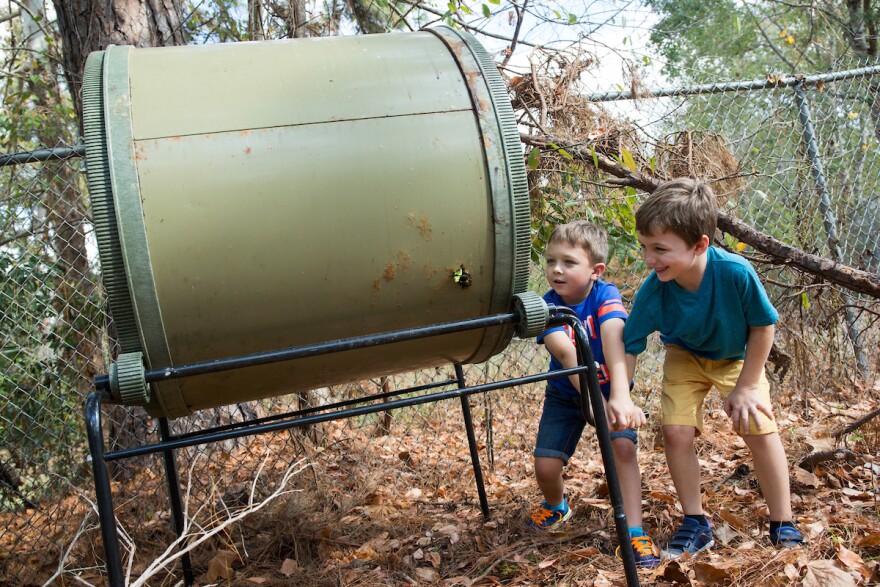Sandwiched between International Compost Week in early May and National Composting Day on May 29, a new initiative with the University of Florida is taking shape as cities across the nation embrace composting as a sustainable solution to food waste.
Mica McMillan, assistant professor of environmental horticulture at the UF/IFAS Fort Lauderdale Research and Education Center, is partnering with the city of Deerfield Beach to spearhead a first-of-its-kind micro-composting initiative aimed at transforming urban food waste management.
This initiative introduces the public to ongoing, coordinated efforts to reduce food and landscape waste from entering the already-saturated landfills in South Florida and harnesses the potential to reuse organic waste.
“Supported by a $400,000 grant awarded to Deerfield Beach from the U.S. Department of Agriculture’s (USDA) Composting and Food Waste Reduction program, this project is led by Hillary Silverstone, sustainability coordinator for the city, and represents a synergistic partnership between academic research, municipal leadership and private industry,” said McMillan.

With UF/IFAS as a key research and education partner, the city is embarking on a project that blends science-based waste diversion strategies, community education and real-world data collection. Partnering with Dustin DuBois, owner and operator of Filthy Organics, and Jairo Gonzalez, president of Organics Recycling Foundation, the initiative will create a fully operational micro-composting facility on city-owned land. This facility will process organic waste within the city.
UF/IFAS Fort Lauderdale researchers and Extension faculty will contribute scientific analysis on compost quality and market viability. They will also coordinate public education efforts that emphasize the environmental and economic value of composting.
The initiative builds upon the success of DFB Compost, Deerfield Beach’s previous USDA-funded program that diverted over 120,000 pounds of food waste from landfills.
Another key component of the project is the launch of the Compost College, an educational program offering hands-on training and webinars to educate residents, businesses and municipal leaders on best practices for composting.
UF/IFAS researchers, Extension agents and Florida compost industry leaders will play a central role in developing and delivering this curriculum, fostering community engagement and dissemination of key composting best practices and information.

“This initiative aligns with UF/IFAS's broader mission to develop sustainable alternatives to landfill dependency, addressing environmental concerns, such as methane emissions, from decomposing organic waste,” said McMillan.
According to the U.S. Environmental Protection Agency, landfills produce up to 14% of all methane emissions annually, creating a variety of health and environmental hazards.
In response, UF/IFAS established the Compost Consortium in 2024, bringing together researchers, policymakers and industry leaders to develop practical composting solutions that can be applied across Florida, and this is a result of that initiative.
“This is another groundbreaking moment that will set the foundation for other successful urban compost programs,” said McMillan.
Set to launch this summer, the Deerfield Beach micro-composting project serves as a model and exemplifies how universities, municipalities and private partners can work together to deliver environmental innovations and implement efficient, community-based composting solutions.
“With UF/IFAS Fort Lauderdale at the research helm, this initiative not only advances local sustainability goals but also contributes to a statewide blueprint for composting success,” said McMillan.




